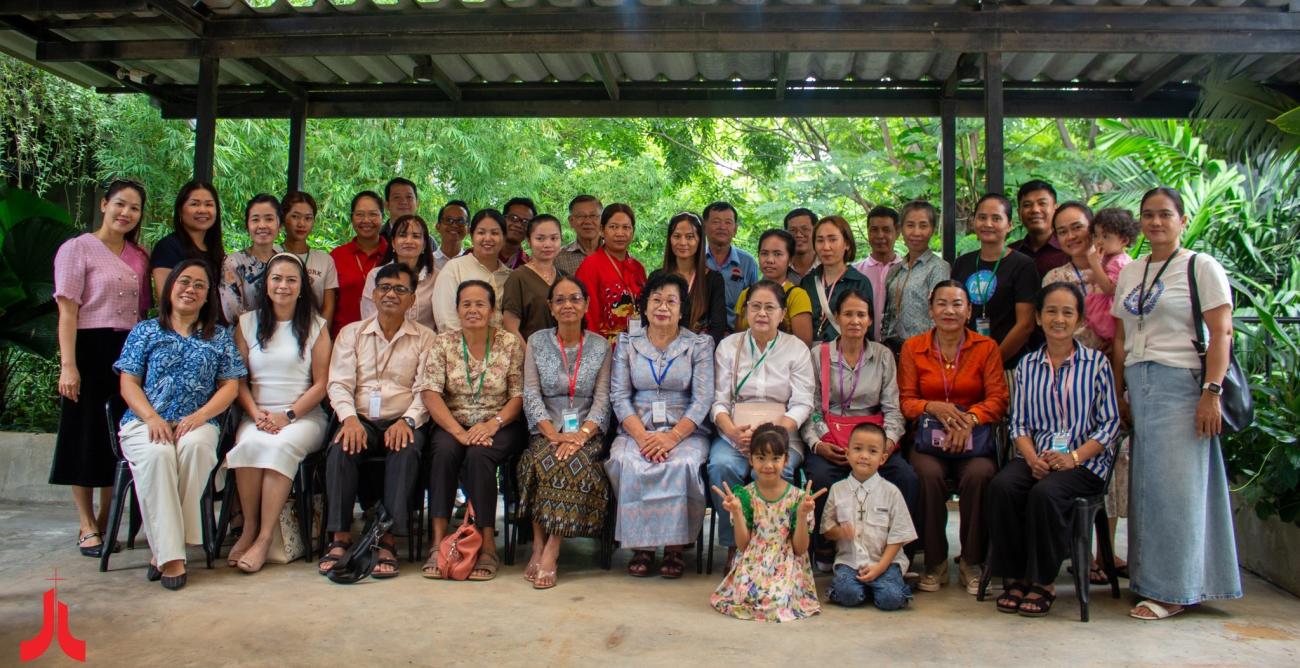Cambodian churches commit to end gender-based violence

Phnom Penh, Cambodia: Cambodian church leaders affirmed their commitment to equipping local congregations to step up efforts to end gender-based violence.
Over forty participants attended the Ecumenical Women’s Action Against Violence (EWAAV) National Consultation, held from 27 to 29 May 2025, and organised by the Christian Conference of Asia (CCA) for members of churches belonging to CCA’s member council in Cambodia, the Kampuchea Christian Council (KCC).
The national consultation which focused on the theme “Empowerment and Collective Action to Ending Violence Against Women”, brought together local church leaders across Cambodia. It aimed to deepen awareness, build capacity, and strengthen ecumenical efforts to combat gender-based violence.
Rev. Kang Phaldaracheat, President of the KCC, opened the consultation by emphasising that women, created in the image of God, possess inherent and sacred worth that must be affirmed and upheld. Drawing upon the life and ministry of Jesus as a model, he urged churches to break down barriers and engage actively in raising awareness to address violence against women and promote gender justice.
Sotheavy Srey delivered the keynote address, focusing on the Church's vital role in empowering churches and communities, and building a collective commitment to gender equality. She urged the Church to be a proactive force in challenging patriarchy, systemic power imbalances, gender stereotypes, religious misinterpretations, and harmful cultural norms. “The Church must be a sanctuary of equality, justice, and respect,” the former youth secretary of KCC and present director of the Alliance for Conflict Transformation stressed.
Lim Sambo of the Ang Metret Church, who shared insights on the status of women in Cambodian society, noted progress in female leadership but warned that deep-seated gender inequality remains. “Cultural norms still create barriers that keep women from accessing education, employment, and leadership,” she said.
A workshop facilitated by Arceli Bile of CCA helped participants identify various forms of violence—physical, emotional, sexual, economic, and structural. She emphasised that without awareness, violence against women remains hidden, unchallenged, and normalised within society.
Former Women’s Secretary of KCC Heng Tol facilitated a Bible study session, guiding the participants to understand the ongoing Cambodian context of gender and justice issues through biblical narratives, emphasising dignity, healing, and empowerment, particularly in Jesus’ interactions with women.
Srey Nak, Gender and Advocacy Coordinator at Bantay Srei, a local women’s NGO, stressed the need for partnerships across sectors, and highlighted the need for mutual accountability between men and women in pursuing gender justice.
Heam Vanna, a member of Zion Church and Family Life Coordinator at World Relief Cambodia, led a discussion on the role of the Church in promoting gender-justice in communities. She encouraged churches to speak out against discrimination and ensure inclusive spaces for all.
Rev. Sok Nev, General Secretary of the revived national ecumenical church grouping in Cambodia, reflected on the biblical figures Deborah and Jael from Judges chapter 4. He urged the participants to recognise and affirm women's strength and spiritual calling in both Church and community life, encouraging them to fully commit to upholding the dignity of life regardless of gender.
The consultation ended with participants sharing their commitments and future action plans to raise awareness and advocate within their churches, organisations, and communities to promote gender justice.
Chhun Chandavy, KCC Women’s Ministry President, brought the event to a close by reaffirming the group’s shared vision of a just and inclusive society.










